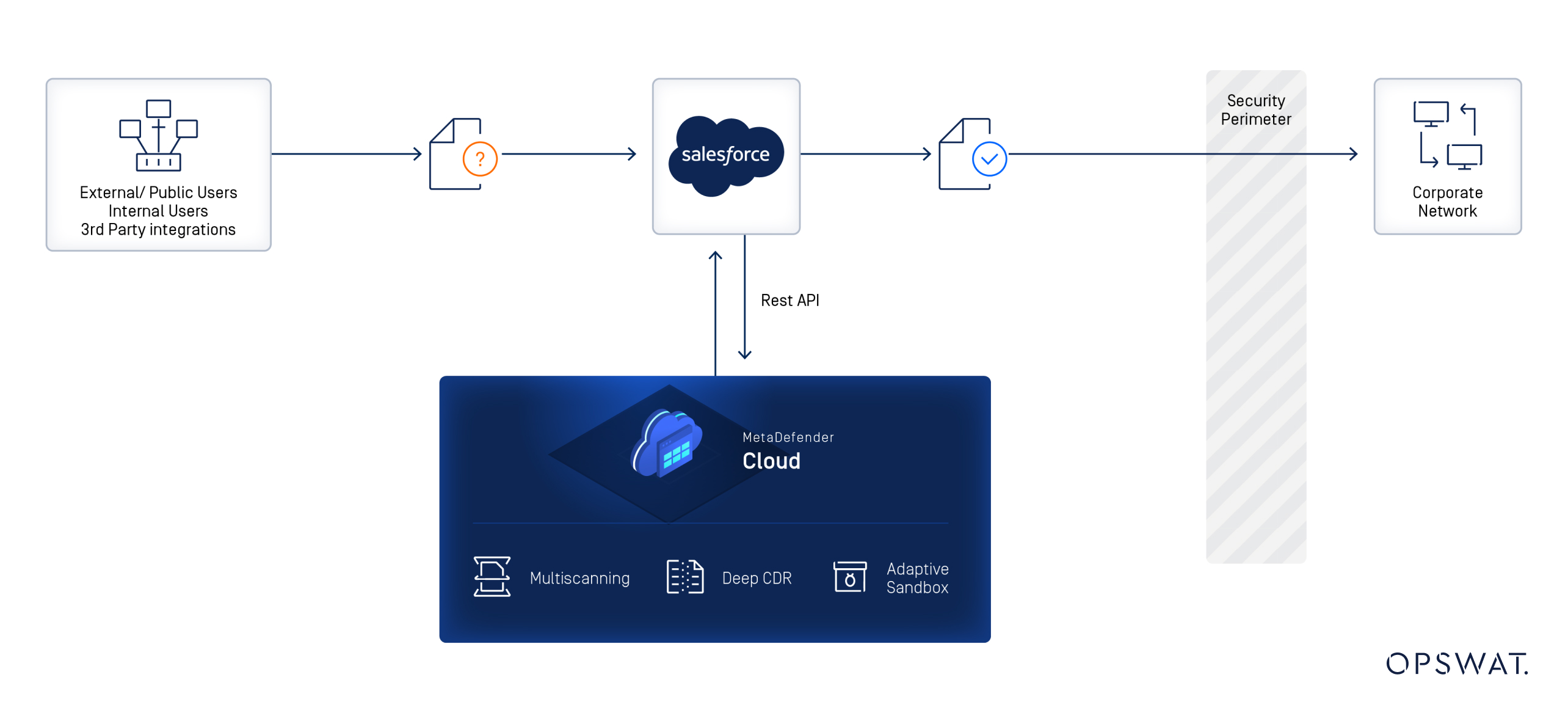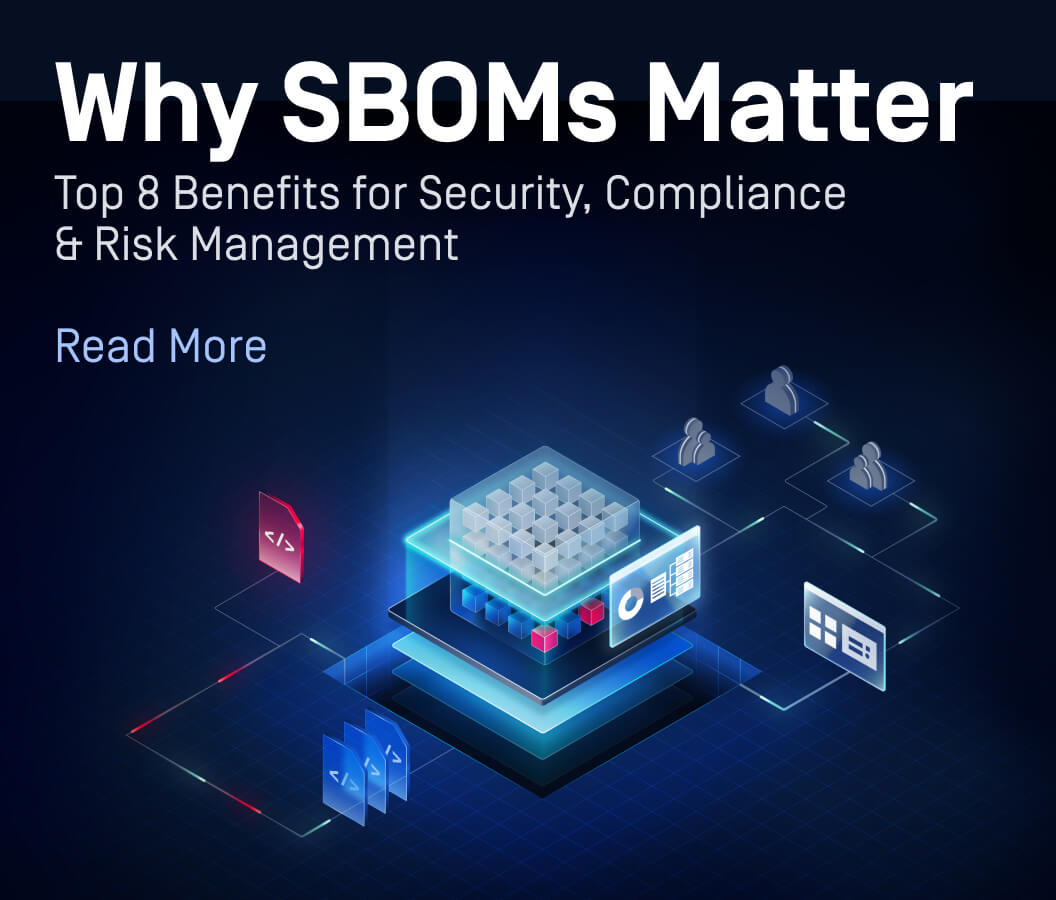Salesforce, with its cloud-based CRM offering, empowers businesses of all sizes to manage customer relationships, boost sales, and drive growth. But like any digital platform, a lack of comprehensive cybersecurity measures may compromise its potential.
While Salesforce itself invests heavily in its security infrastructure, the ultimate responsibility for securing your data within their platform lies with both parties. Failing to secure your file uploads can have catastrophic consequences, impacting your finances, reputation, and customer trust.
So why should you prioritize cybersecurity measures for your Salesforce Cloud assets? Let's delve into the key reasons:
1. Rising Threat Landscape
The digital landscape mirrors this reality, with cybercriminals constantly innovating new methods. 82% of breaches target cloud-based data, with ransomware at the forefront.
By 2031, ransomware attacks will have risen at an alarming rate, and the global cost of malware damage is projected to reach $10.5 trillion.
2. Unique Vulnerabilities of the Cloud
Cloud-based platforms like Salesforce offer undeniable advantages, but they also introduce unique security challenges.
On May 3rd, 2022, Salesforce reset all Heroku account passwords due to a potential security incident. Details surrounding this incident were scarce, which led to increased concerns regarding unauthorized access, as well as doubts about Salesforce's communication and transparency during security incidents. This incident is just one recent example of how cloud service providers may not always be responsive or forthcoming about cybersecurity vulnerabilities that could compromise their customers' data.
Cloud services also present a wider attack surface with more potential entry points for malicious actors, with their shared infrastructure, multi-tenancy, and reliance on internet connectivity. Understanding these vulnerabilities and implementing robust security measures is crucial to mitigate risk.
3. Protecting Sensitive Data
In 2023, a shocking number of organizations, including banks and healthcare providers, leaked private and sensitive information from their public Salesforce Community websites, highlighting the platform's vulnerability and your need for proactive measures.
Salesforce likely houses your most valuable asset – your customer data. Names, addresses, contact information, and financial details – all reside within the platform. Investing in cybersecurity safeguards the privacy and security of this sensitive information.
4. Compliance Mandates
Depending on your industry and location, you might be subject to various data privacy regulations like GDPR, CCPA, or HIPAA. These regulations mandate specific security measures to protect data. Failing to comply can result in hefty fines and legal repercussions.

Source: Statista
5. Business Continuity and Reputation
A cyberattack can cripple your business, leading to downtime, lost revenue, operational disruption, and potential legal repercussions. Data breaches can tarnish your reputation, leading to customer attrition and decreased brand loyalty. Investing in cybersecurity minimizes these risks, ensuring business continuity and protecting your hard-earned reputation.
6. Building Customer Trust
Customers increasingly prioritize data privacy and security when choosing businesses they interact with. Demonstrating robust cybersecurity practices through certifications and transparent communication builds trust and fosters loyalty. This trust translates into better customer relationships and sustainable business growth.

Source: PwC’s 2023 Trust Survey
Protecting Your Salesforce Platform With a Multi-layered Approach
Cloud Security for Salesforce uses a broad portfolio of industry-leading and proprietary file upload security technologies to prevent malware and prevent potentially malicious content from being uploaded to your Salesforce Cloud:

Multiscanning
Harnesses the power of 15 leading anti-malware engines, proactively identifying over 95% of file-borne malware for the highest and earliest detection.

Deep CDR (Content Disarm and Reconstruction)
Technology scans and sanitizes every file uploaded to the Salesforce environment to prevent file-borne attacks.

MetaDefender Sandbox
Isolates and analyzes file behavior, including executable files, in a controlled environment, effectively detecting and neutralizing hidden threats with 10 times the speed and 100 times the efficiency of traditional sandboxes.

Remember, cybersecurity is a dynamic process, not a one-time fix. By prioritizing it, investing in the right tools and practices, and staying vigilant, you can safeguard your Salesforce Cloud assets, mitigate risks, and cultivate a secure environment for your business and your customers.
About Cloud Security for Salesforce
Fortify your Salesforce data with OPSWAT Cloud Security for Salesforce, a cloud-based solution designed to complement the native security capabilities of your Salesforce platform. This solution meticulously processes and sanitizes every file before it enters your system, eliminating hidden threats and zero-day malware.
Contact our cybersecurity experts for more information and assistance.

